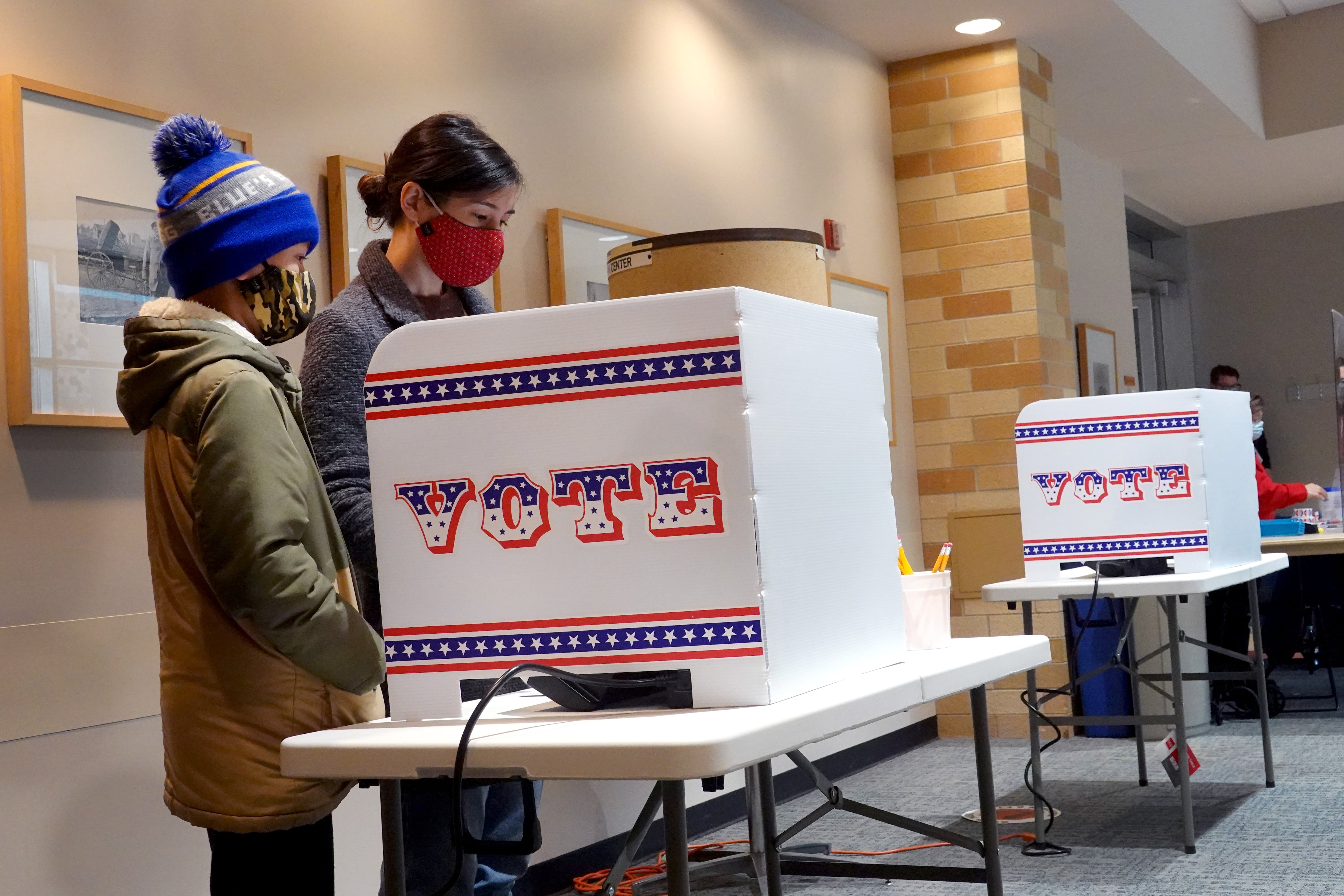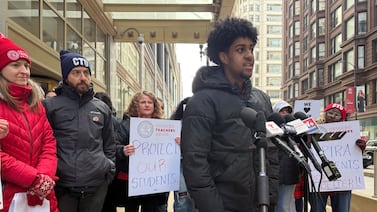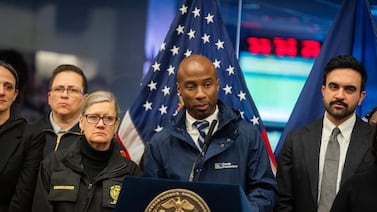Most education decisions are local decisions. But the pandemic has thrust education policy onto the national stage, bringing unusual attention to new debates about when to reopen schools and what resources schools need to get back on track.
That means that the elections for president and Congress will almost certainly have some concrete implications for schools in just the next few months. And even though education hasn’t been at the center of President Donald Trump’s or former Vice President Joe Biden’s campaigns, the two candidates offer starkly different visions for the future of America’s schools — when it comes to both navigating the COVID crisis and improving education over the long haul.
Here are eight ways that the choices Americans make next week could affect K-12 schools, and the students they serve, for years to come.
1. Tens, even hundreds, of billions of dollars of federal money for schools are likely at stake.
Public school budgets face a major crisis in the coming years. With state tax dollars drying up during the COVID-fueled recession, schools are likely to face budget cuts. Some already have.
Public school groups are looking to the federal government for a huge infusion of money to schools and state governments to help fill this gap and address the costs of opening schools during the pandemic. Biden and Congressional Democrats say they’ll do exactly that.
“Schools — they need a lot of money to open,” Biden said at the final presidential debate. “They need to deal with ventilation systems. They need to deal with smaller classes, more teachers.”
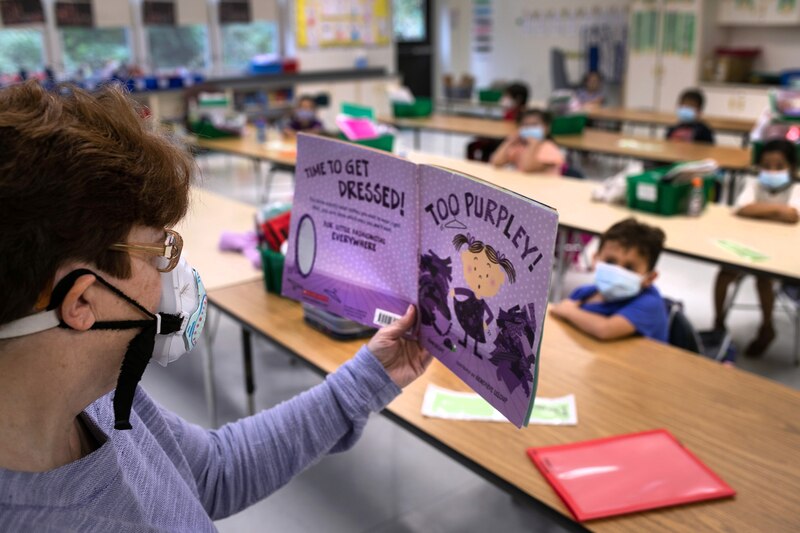
In other words, Democratic control of the White House and Congress means additional federal money for public schools is much more likely to happen.
Trump and Congressional Republicans take a different view. They too have backed additional funding for schools to address COVID, with much of it tied to a requirement that schools reopen for in-person instruction. They also want to ensure private schools receive some of the relief dollars.
But Republicans have balked at additional funding for state governments, suggesting this would amount to a bailout of blue states. (Red states are also facing budget challenges, and Republican governors have called for federal aid.) In states with large budget holes, no federal help could mean sizable cuts to public education.
Overall, Republican control of the White House and Congress would likely mean less money for schools, but more money for private schools. There’s also a greater chance that additional money would be tied to reopening requirements.
2. Under a Biden administration, schools would face less federal pressure to reopen buildings, especially without more aid. Trump is likely to keep up the pressure.
Since the summer, the Trump administration has pushed schools to fully reopen their doors without much regard for the spread of the virus. It’s put pressure on federal health officials to downplay the risks of reopening. The guidance it has provided to schools has often been confusing. And it’s threatened to withhold federal funds to schools that don’t reopen. The administration hasn’t signaled it would change its approach if Trump were reelected.
“We’re not going to shut down,” Trump said at last week’s presidential debate, while pointing to his teenage son’s recovery from COVID. “And we have to open our schools.”
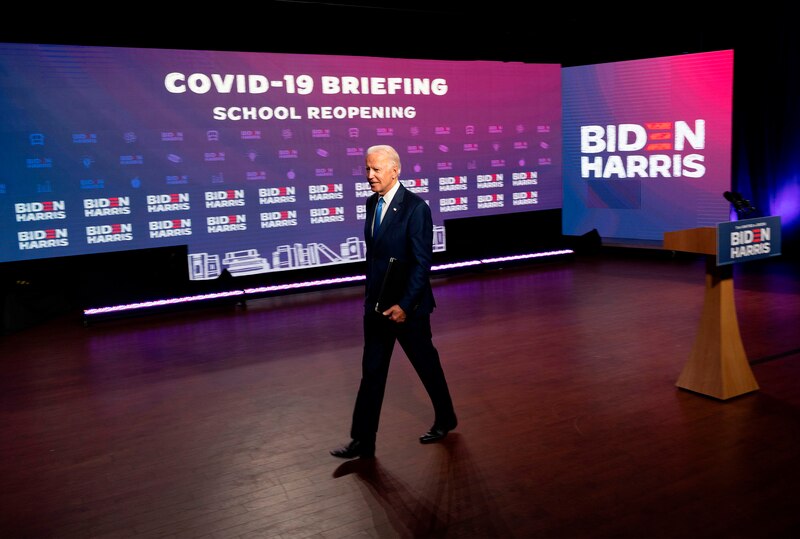
On the other hand, Biden has said he would issue “national guidelines” that tie school reopening to the level of viral spread in a community. Those guidelines would include infection rate thresholds and suggestions for class sizes and which students should return to classrooms first. His campaign has criticized the Trump administration for leaving school districts to “improvise a thousand hard decisions on their own.”
But Biden has emphasized he’s not planning to mandate specific approaches. The campaign has said state, local, and tribal officials will ultimately decide when to reopen schools.
3. A Biden administration would boost civil rights enforcement and bring renewed attention to issues like student discipline disparities.
Under Education Secretary Betsy DeVos, President Trump’s administration has shrunk the size of the education department’s civil rights office and limited the scope of its investigations. It’s also revoked guidance issued by the Obama administration meant to curtail racial disparities in school discipline, protect the rights of transgender students, and improve racial diversity in colleges and K-12 schools.
Officials in the Trump administration have defended these moves, saying getting rid of the guidance and reducing the size of the federal education department means states and local communities have more control over education.
The Biden campaign has promised a dramatic reversal of that approach. Stef Feldman, the campaign’s policy director, recently told reporters that Biden “absolutely believes that we need a strong civil rights division in the department of education,” and sees its “oversight ability” as a key part of the federal government’s role in education.
As part of the 2020 Democratic platform, Biden has pledged to “reinvigorate” and increase funding for the education department’s civil rights office, and to reissue the revoked school discipline guidance. His campaign has also promised to reinstate Obama-era guidance that helped schools consider student race while working on desegregation plans and guaranteed transgender students access to facilities that correspond with their gender identity.
“It is clear that we have heard different views expressed by different candidates during this election cycle with regards to their understanding of, and commitment to, the rights of LGBTQ students, and sexual assault survivors, Black students, and other students of color,” said Liz King, the education program director at The Leadership Conference on Civil and Human Rights, a nonpartisan civil rights umbrella organization.
4. The next administration is going to make an important decision about standardized testing this school year.
The Trump administration canceled state testing last spring as schools closed across the country, but has signaled a repeat of that decision is unlikely.
“It is now our expectation that states will, in the interest of students, administer summative assessments during the 2020-2021 school year,” DeVos wrote in a September letter to state school leaders. “The data from assessments can help inform personalized support to children based on their individual needs and provide transparency about their progress.”
A Biden administration would provide advocates of canceling the tests another bite at the apple, and some state education leaders are holding out hope for a different decision.
Biden has criticized standardized testing generally, but has not weighed in on this specific issue. “Right now our focus is on doing everything we can to get our schools up and running as quickly as possible,” Feldman, the Biden policy director, said last week. “In some ways, the answer to this question depends on how much progress we can make in supporting our schools.”
Notably, this issue does not cut neatly along partisan lines. Congressional Democrats have praised DeVos’ support for maintaining testing.
5. Aside from the pandemic, Biden has promised to spend more on public schools, while the Trump administration has tried to cut the federal education budget.
With the ongoing pandemic, it’s unclear how much money Congress would be willing to spend on new education initiatives, especially if legislators agree on another big round of coronavirus relief for schools.
But Trump and Biden have laid out very different visions, and have diverging track records, when it comes to federal spending on education.
In each of the last four years, Trump and DeVos have tried to reduce the federal education budget, though Congress has largely blocked those efforts. The federal government’s role in education should be smaller, they’ve argued.
Meanwhile, Biden has promised a flood of new federal spending on education. He’s pledged to triple the Title I funding that benefits higher-poverty schools and to massively expand pre-kindergarten — promises he’s still making despite the pandemic. He’s also called for raising federal spending on special education and providing free community college.
6. Trump and DeVos would likely continue to prioritize access to private schools, while a Biden administration may ignore them.
DeVos’ top priority has been expanding access to and funds for private schools. She has (unsuccessfully, so far) championed a federal tax credit to help parents pay private school tuition. She has argued that any future pandemic relief package should include money for private schools. And she attempted to redirect money from the CARES Act from public to private schools, before three federal judges said she was misinterpreting federal law.
“At the end of the day, we want parents to have the freedom, the choices, and the funds to make the best decisions for their children,” DeVos said in a recent speech.
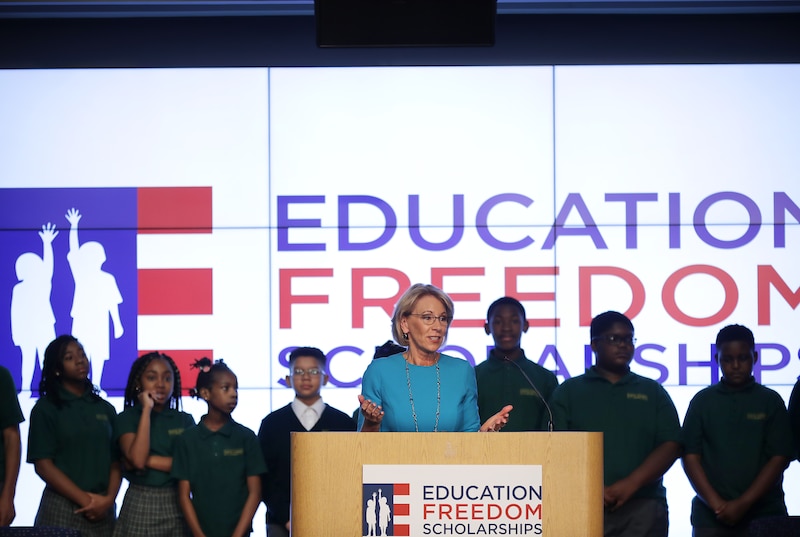
It’s not clear whether DeVos would stay on if Trump is re-elected, though one of her top deputies, Jim Blew, has indicated she and her team likely would. “If I had to say today, I would say that our calculation would be that we will stay,” he said at a conference in September.
A Biden administration is unlikely to prioritize private schools. “Joe Biden opposes the Trump/ DeVos conception of ‘school choice,’ which is private school vouchers that would destroy our public schools,” his campaign has said.
7. Biden has promised to reinstate and expand protections for many young immigrants.
Back in 2017, the Trump administration tried to end the Deferred Action for Childhood Arrivals program, or DACA, which grants protection from deportation and work permits to nearly 650,000 young immigrants. The program has had an outsized effect on schools: Many of its recipients have been high school or college students, while research has suggested DACA made undocumented students more likely to graduate from high school and go to college.
Earlier this year, the Supreme Court blocked Trump’s efforts to end DACA, allowing current recipients to keep and renew their status. But the high court’s ruling also opened the door for the Trump administration to try again to end it, and the federal government has since said it will not accept new applications — leaving in limbo some 56,000 immigrant teens who previously would have qualified, according to an estimate from the Migration Policy Institute.
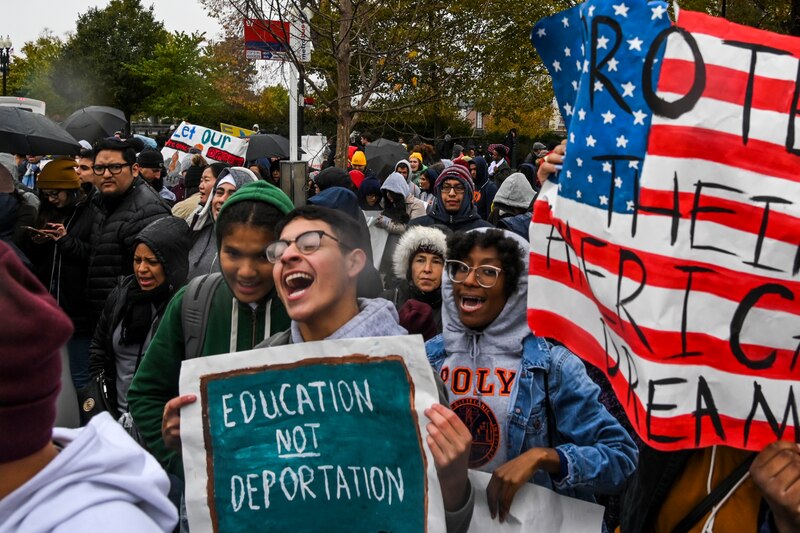
If Trump remains in office, it’s expected he will try to end DACA again, though he’s also said he’s open to striking a legislative deal.
Biden has said that he would reinstate the program and work to make it permanent by sending Congress an immigration reform bill on “day one” of his presidency. He’s also said the young immigrants who qualify for DACA should have a pathway to citizenship and be allowed to receive federal student loans to help pay for college.
8. Whoever controls the Senate will have a say in additions to the Supreme Court — with potentially big consequences for education.
This week’s confirmation of Justice Amy Coney Barrett brought into sharp relief a crucial power that the next president will have — the ability to appoint Supreme Court justices if any vacancies arise or the court is expanded.
In the coming years, several key legal educational battles could reach the highest court.
One involves the interpretation of a recent court decision saying states cannot exclude private schools from public funding solely because they are religious. Some, including DeVos, are already arguing that laws prohibiting religious institutions from running charter schools are unconstitutional.
Another issue is whether there is any federal right to an education, something that has percolated in lower courts recently. A third is how to apply a recent decision allowing public employees — including teachers — to fully opt out of labor unions. And a final issue is what free speech rights public school students have off campus, which has been the subject of recent lower court debate.

